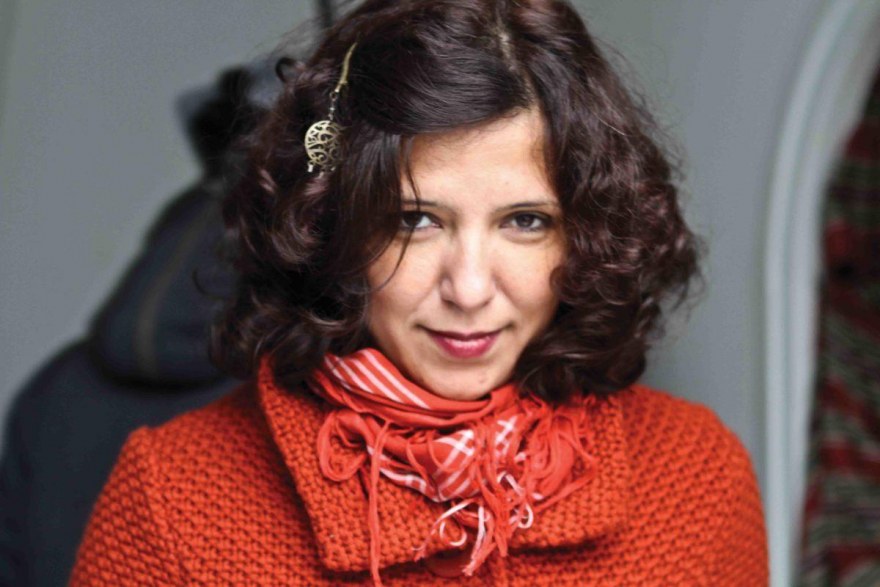Revolution, jihad and family ties in “FOUR DAUGHTERS” | Cannes
In 2015 two of Olfa Hamrouni’s four daughters left home to join the Islamic State in Libya. Tunisia was becoming known as the leading exporter of jihadists then. “They were eaten by the wolf,” the mother ominously says in the beginning in an attempt to rationalize their absence, her remaining two daughters by her side. Part-confessional, part-memorial “Four daughters,” (“Les Filles D’Olfa” in the original French) which is documentary as much as fiction and also film-within-the-film, finds these three women taking turns in front of the camera to reflect on the last decade of their lives. The mother appears on-screen but she is also played by a woman and they both appear on camera together from time to time, two young women brought on to play the absent sisters are also a part of this cast.
A decade of memories, of the four sisters living together in difficult financial conditions with a distant father barely paying attention to his family, but also a decade marked by a revolution, when Tunisians en masse demonstrated their anger about social inequalities and corruption, is examined. The revolution barely lasted a month but it resulted in Ben Ali, who was president at the time, being ousted.
The daughters emotionally describe their absent sisters, the difficulties encountered by the mother in providing for her daughters, ensuring they wouldn’t attract the wrong kind of stare when leaving the house and that they had enough to eat. This sounds like a lot of teary-eyed revelations but it’s not, the women keep it together, there’s a sincerity in these proceedings that I found touching.
The mother, a cleaning lady, is an authoritarian. Memories of childhood, good and bad, funny and less-funny ones, are related in front of the camera in a confessional style. The mother often appears alone on the screen, when it’s the daughters’ turns they’re usually altogether in front of the camera, they laugh and break into song and go from warm to intense to sad but not melodramatic.
Tunisian filmmaker Kaouther Ben Hania attended La Femis, France’s prestigious film school. She’s been making films since 2002 and has nine films under belt.
“Olfa’s daughter” impressed me for its originality as much as for it lyricism. A mockumentary-style film, Ben Hania organized her cast to like moving mirrors, sisters alternate on the screen, recounting the memory of a sister, or the father, the mother then appears and recounts her own reminiscence, the transition from the different testimonies create a bittersweet cry, of a family, of a people, that’s heard against the background of a country formerly in upheaval and now caught in post-revolutionary fog, where the political climate has changed but the world order is the same as it was before.
About halfway through the movie, the two sisters describe how their other sisters began wearing the niqab, a garment favored by Islamic extremists. The liberal-minded sisters seem unfazed by their sisters’ choices and yet there’s concerned surprise. The sisters’ growing extremism become the focal point of the last act of “Four Daughters,” real-life newsclips are played of the Hamrouni sisters’ arrest, one of whom became a mother while training in Libya. She is flanked by her young daughter as she walks into a room at a courthouse. She wears the niqab, her daughter, about three or four, does not. The image stays on the screen for a long time, the camera zooms in on the baby girl’s face. What future for her?
“Four daughters” had a lasting effect on me, it’s difficult to keep such a complicated film together and Ben Hania did just that, with maestria. It’s of my favorite films of this 2023 edition.
news via inbox
Nulla turp dis cursus. Integer liberos euismod pretium faucibua



